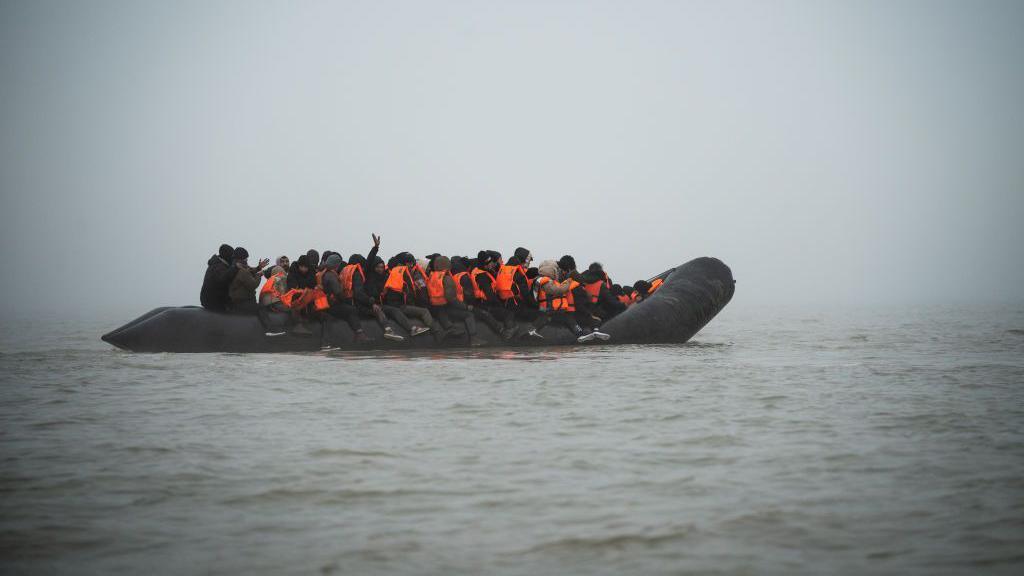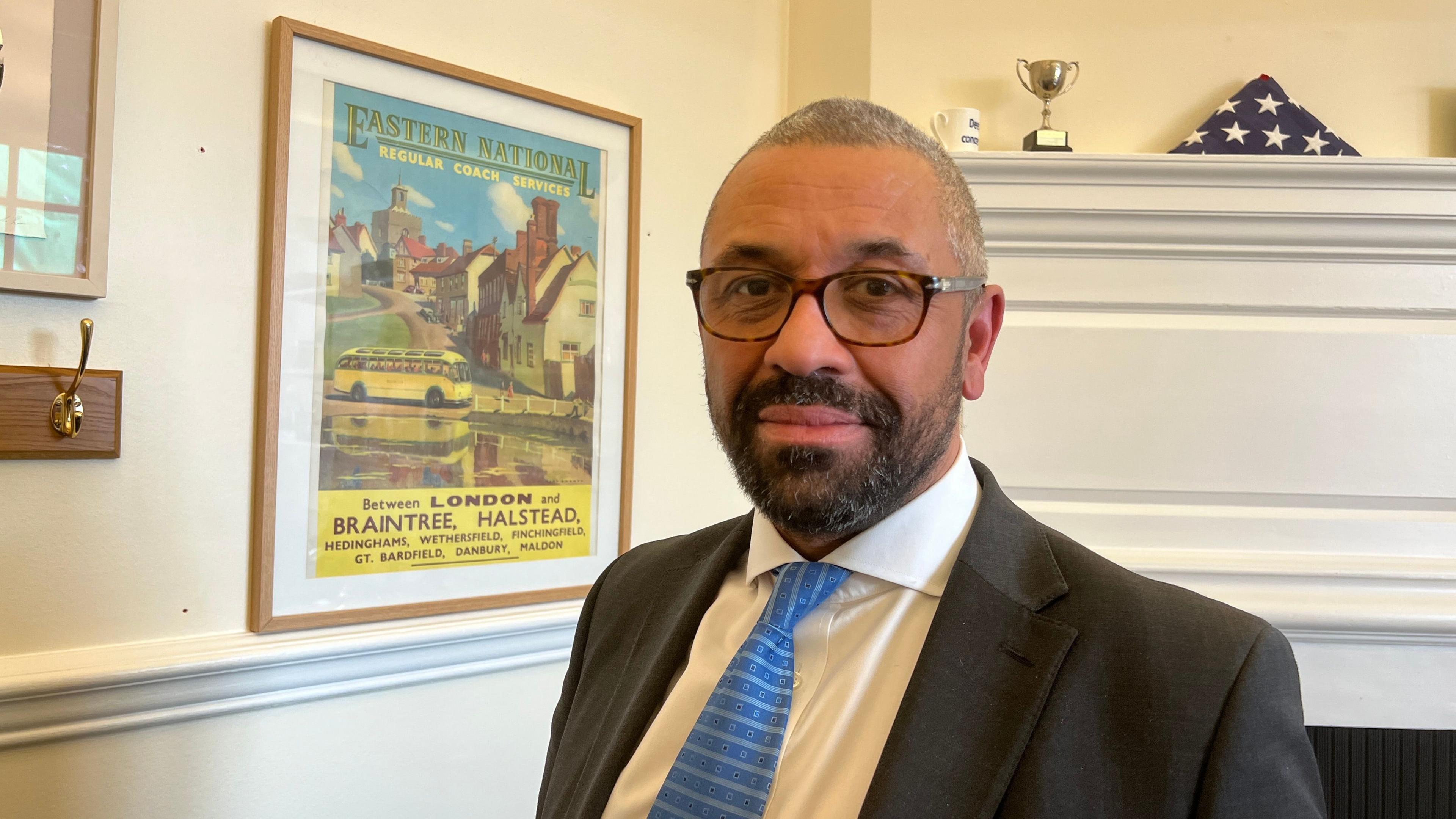More volunteers needed to help disabled refugees

Volunteers teach give the refugees English lessons
- Published
The founder of a charity which is helping disabled refugee to integrate into society has said they are desperate for more local volunteers.
Calais Light offers English lessons to the refugees in Clacton-on-Sea, Essex, and trips into the local area to try meeting local people.
Mary Stretch says the charity helps dozens of refugees every week, but it "cannot get Clactonians to help".
"They need to be informed and they need to see refugees living a normal life alongside them," Ms Stretch added.
According to the latest Home Office data, external, there were 51 asylum seekers being supported by Tendring District Council in March 2023.
That is up from 10 refugees at the end of the previous March.

Mary Stretch said most of the charity's volunteers travelled in from outside Clacton-on-Sea
Farhan Yousef, originally from Pakistan, has been living in Clacton for nearly two years whilst she waits for her asylum claim to be processed.
"I like Clacton because it is peaceful and silent," she said.
"I learn the English language quickly – I love my English class."
The charity said it provided nearly 1,000 hours of "functional" English lessons during 2024.
Gemma English, a volunteer teacher from Colchester who puts the lessons together, said they were "a lifeline".
"When people first come, they are completely out of their depth," she told the BBC.
"They don't know how to find a shop or how to register with the doctor, it's really crucial stuff."
She continued: "So we talk about all the things people need to be able to survive and then to thrive in this community, so that eventually they can look at getting jobs which is what they want to do so they can contribute."
The refugees recently enjoyed ten-pin bowling in Clacton.
Lindsay Francis, who coordinates the volunteers and organises the events, said "integration has got to be a two-way street".
"You can't integrate if you don't meet people, if you don't get out into the community and if you don't find out what British life is like."
'Bad rep'
Ms Francis said she had been nervous about taking the refugees out into the community as the town "gets a bad rep".
But she said: "All the local people that we've come across have been really nice and have not made any of our refugee guests feel unwelcome."
Ms Stretch also told the BBC it had been "nerve-wracking" for the group at times "because it is well known that Clacton has a huge amount of anti-refugee sentiment in the past," but she was reassured by the response the charity had received.
"Everybody knows that they are refugees - we've never had any incidents at all," she said.

Lindsey Francis said that integration "is a two-way street"
Recent analysis showed almost 42,000 asylum seekers in the UK were waiting for an appeal hearing after the Home Office rejected their settlement claims.
The Refugee Council said the number was a five-fold increase over two years.
Ms Stretch said the refugees she worked with had not chosen to live in Clacton.
"It's unfortunate that the government sees fit to place people in towns which are really struggling," she said.
"Seaside towns like Margate [in Kent] and Tendring, which has a huge amount of people who are already disparate, who struggle to survive, who need food banks, who have high levels of ill health.
"Now that town has to also cope with refugees - but it's not their choice, it is the government who chooses to send him there."
Government research released in 2019 found that deprivation had worsened in Tendring over the course of 12 years, external.
Thirteen neighbourhoods in Tendring were among the top 20% most deprived in England.
A spokesperson for the Home Office said it had "inherited an asylum system under unprecedented strain".
"We are determined to restore order to ensure it operates swiftly, firmly and fairly," the spokesperson added.
"This includes providing appropriate support to those who would otherwise be destitute, and working with organisations who give specialist help to those individuals."
Get in touch
Do you have a story suggestion for Essex?
Follow Essex news on BBC Sounds, Facebook, external, Instagram, external and X, external.
- Published11 April

- Published17 March

- Published30 March
